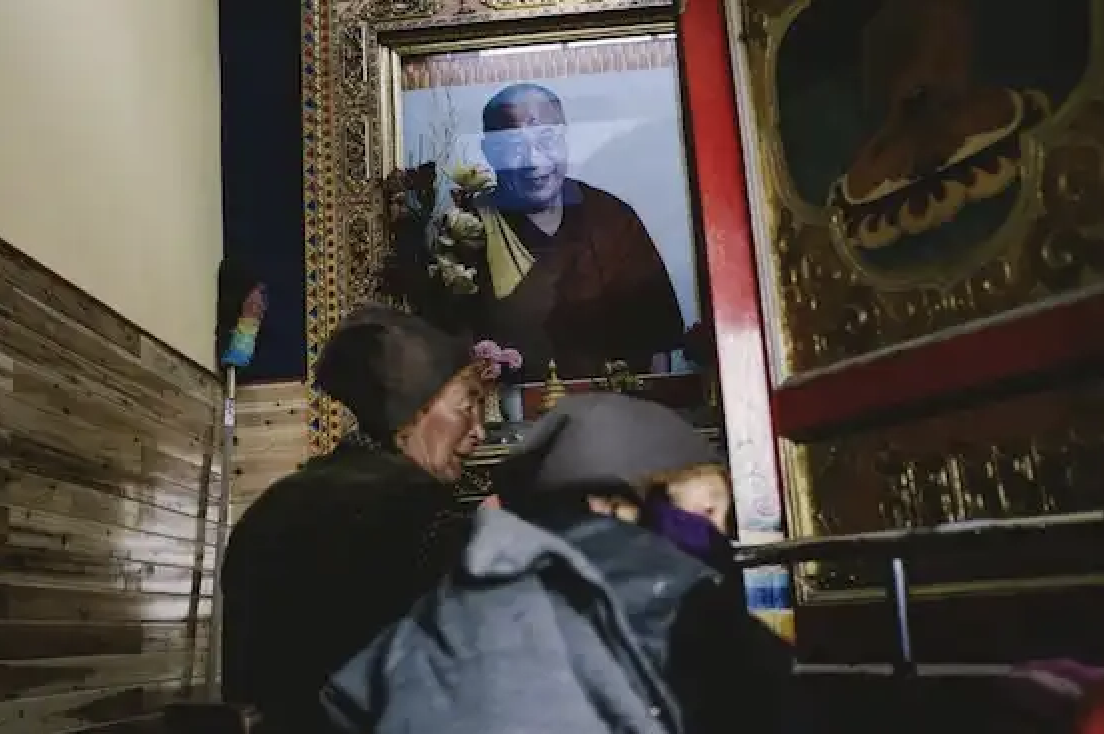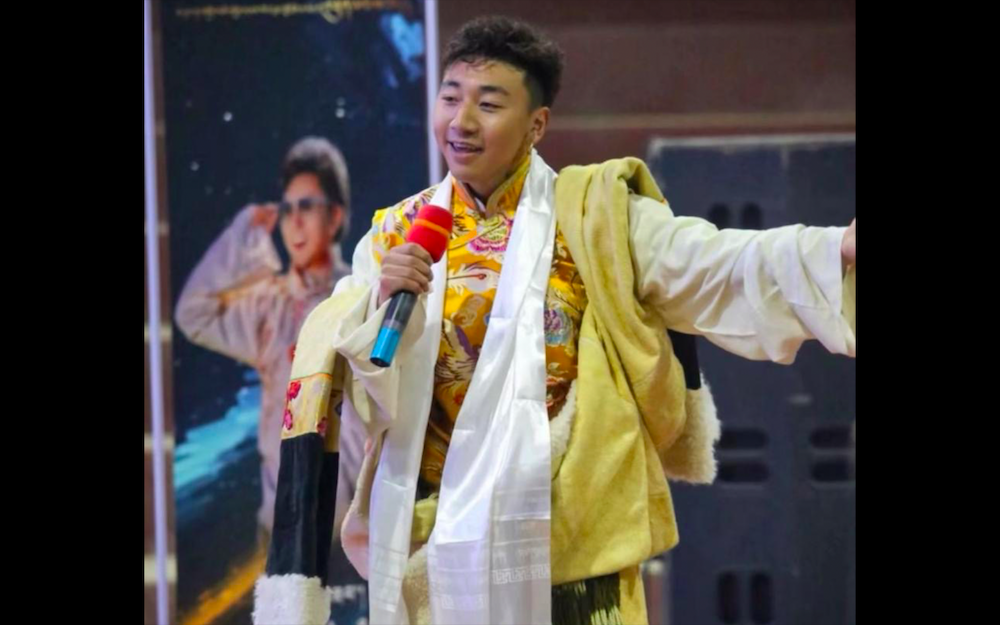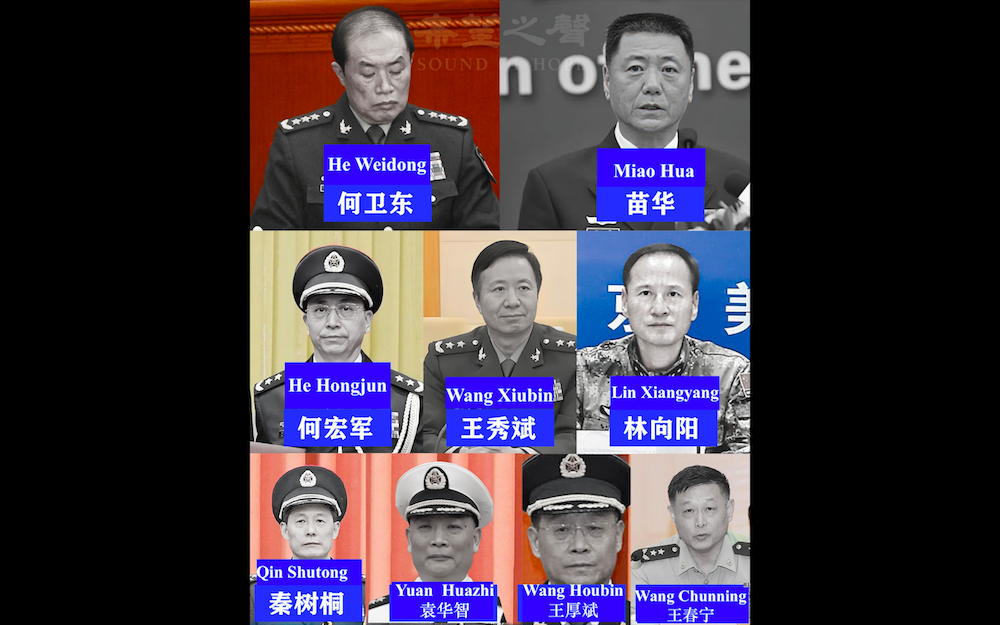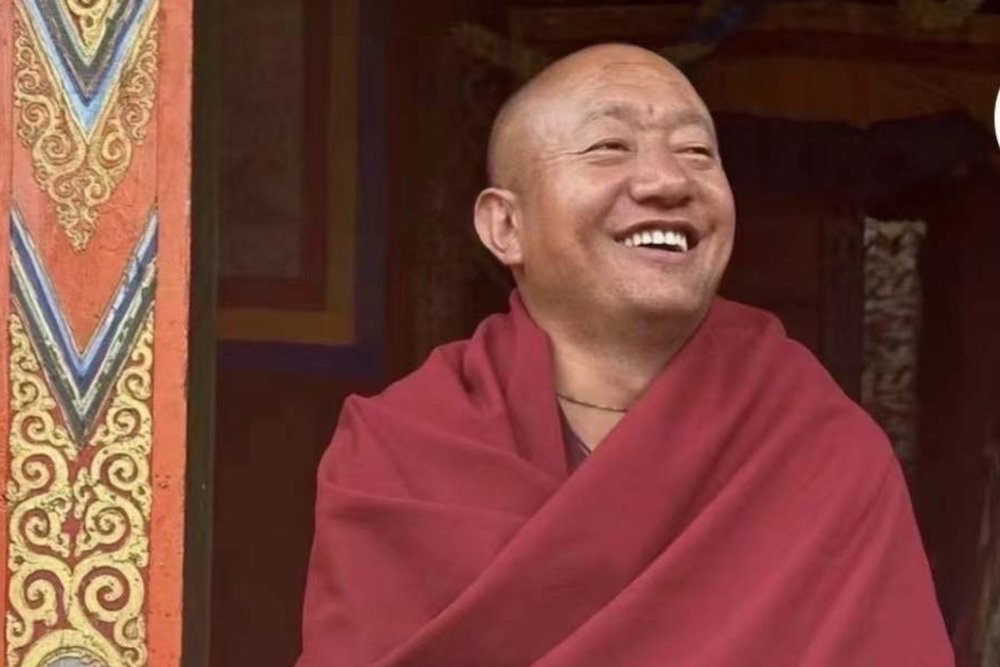By Fang Tien-sze
A four-man delegation from the Tibetan government-in-exile visited China last month — the third time since September 2002 that a special envoy of the Dalai Lama has met with the Beijing authorities. It is also the first meeting between the authorities in Beijing and the government-in-exile since the fourth plenum of the 16th Chinese Communist Party Central Committee, when President Hu Jintao took over all control of the Central Military Commission.
Did Hu show greater flexibility and goodwill on the Tibet issue? As this reflects Hu’s attitude toward Taiwan to some extent, we should give the question some consideration.
The Chinese government broke off official talks with the Tibetan government-in-exile in 1993, citing as its reason the Dalai Lama’s refusal to give up his demand for independence for Tibet.
China’s policy has been to treat the Tibetan question as a “Dalai Lama question,” believing that the Tibetan independence movement will die a natural death when the Dalai Lama dies, since there is no other leader of comparable stature.
In June 1998, when former president Jiang Zemin met with then US president Bill Clinton, he added a new condition for the resumption of talks, demanding that Tibet accept the principle that Taiwan was an inalienable part of China in an attempt to sow discord between the Taiwanese government and the Tibetan government-in-exile.
In the face of intense pressure from China, the Dalai Lama appealed to the international community to take notice of the damage China is inflicting on Tibet’s unique cultural, religious and environmental heritage,
and managed to win foreign sympathy. The Dalai Lama also publicly stated that he was willing to relinquish demands for independence in exchange for “real” autonomy.
China realized that it had lost the advantage in the international propaganda battle and in 1992 the State Council released a series of white papers on Tibet, dealing with human rights, ecology, culture, economic development and other issues.
The number and frequency of these white papers is an indication of the importance the Chinese government places on Tibet.But Beijing remained adamant in its refusal to resume negotiations with the Dalai Lama. It was not until September 2002, after the flight of the 17th Gyalwa Karmapa to India and as a result of intense pressure from the US that China agreed to receive a special envoy from the Dalai Lama.
Even then, Beijing refused to admit that this was an equal official communication with the government-in-exile and referred to the Dalai Lama’s representative as being on a “personal mission” and being nothing more than “an overseas Tibetan with close ties to the Dalai Lama.”
China has shown greater confidence in dealing with Tibet in recent years, and its attitude has consequently hardened. For example, Tibet was the first area in which China experimented with its “one country, two systems” policy. In 1951, representatives of China and Tibet signed a 17-point agreement in which Beijing promised in writing that it would not alter Tibet’s political system and would not force Tibet to undertake a “revolution.”
But after gradually tightening its hold on Tibet, China broke its promise and the Dalai Lama was forced to break with Beijing and flee to India. On May 23 last year, the State Council released a white paper on autonomy in the Tibetan ethnic region which explicitly rejects the Dalai Lama’s demand for a “high level of autonomy” under a “one country, two systems” structure. Its reason was that Tibet differed from Hong Kong and Macao in not having been a colony of the Western powers and therefore did not face the problem of regaining lost sovereignty.
If this logic is upheld, then China has no business asking Taiwan to accept “one country, two systems.” It is obvious that Beijing is simply unwilling to compromise with the Dalai Lama.The Tibetan government-in-exile has high hopes of what might be achieved under Hu’s leadership. One reason is that Hu served as party secretary in Tibet from 1988 to 1992 and is regarded as one of the few top Chinese leaders with an understanding of the actual situation in Tibet.
Although Hu was responsible for the savage suppression of demonstrations in Tibet and also instituted martial law there, many people believe that he was merely following orders from the central government.
Many analysts believe the special envoy’s mission was to negotiate for the return of the Dalai Lama and his government to Tibet. In an interview in this month while visiting Mexico, the Dalai Lama said that both sides are currently working to establish mutual trust and have not yet engaged in detailed discussions on specific issues. Clearly no substantial breakthrough has yet been achieved in the negotiations.
Nevertheless, many people believe that Hu’s accession to power will make it much easier to resolve the Tibet problem. Democracy activist Wang Dan has stated that he believes the problem will definitely be resolved during Hu’s term.
Now Hu is gradually consolidating his power and he will eventually be able to put forward his own ideas on the Tibet issue.
But opinion in Taiwan is still divided as to what kind of policy the new leadership is likely to adopt in relation to Taiwan. How Hu deals with the Tibet question may provide some hint of what Taiwan policy he will eventually adopt.
Fang Tien-sze is an assistant research fellow at the Cross-Strait Interflow Prospect Foundation.
Translated by Ian Bartholomew









